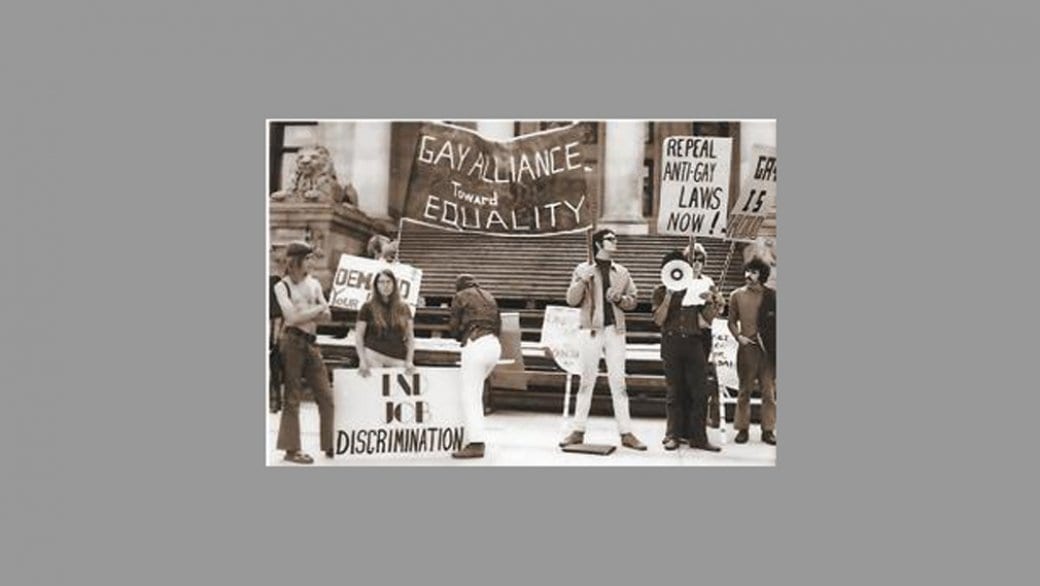Six weeks after the federal government promised to review convictions for homosexual activity, three prominent advocacy groups say they haven’t heard what the Liberals are doing.
Prime Minister Justin Trudeau’s spokesman told Daily Xtra on April 8, 2016, that more details are coming soon, yet couldn’t specify when. But the government now says the review is much wider than originally pledged.
On Feb 28, the government announced it would review cases of gay men convicted prior to 1969 on charges of gross indecency or buggery. The review would determine if a pardon is merited for each convicted man.
In an interview with Daily Xtra, Trudeau’s spokesman Cameron Ahmad specified on April 8 that the review would also look at removing Criminal Code section 159, which puts the age of consent for anal sex two years higher than the general consent age of 16 and forbids “if more than two persons take part or are present.”
Ahmad explained that the review will be broad, and would look at those situations for those dismissed from the public service and the military for homosexuality.
But the government couldn’t provide any further details, such as who would lead the review, any timeline or how many cases are involved.
“I just can’t get more specific at this time, but I understand that it’s a very important issue for Canadians,” Ahmad said, explaining that the review spans multiple departments. “It’s something the government takes very seriously.”
Gary Kinsman, a spokesman for the We Demand an Apology network, says he’s not sure the government has done anything since its original pledge. “It’s a very small step forward,” said Kinsman, a Laurentian University sociology professor. “It’s an opening and we need people to push it further.”
The group has been meeting with members of Parliament, and drafting a submission on how the government can go about issuing pardons.
The government’s announcement came after a Globe and Mail report about Everett Klippert, who was labelled a dangerous offender for consensual sex. On Feb 28, Trudeau’s office said he intended to seek a pardon for Klippert, who died in 1996, and review convictions under buggery and gross indecency laws before their 1969 abolition.
Kinsman wants the review to look at other convictions past that date. He has documented hundreds of gay men and lesbians convicted under other laws in his extensive book, The Canadian War on Queers.
That would require a case-by-case approach, Kinsman says, as some laws were used to prosecute genuine misconduct while others were used to lock up queer people. “Unless there is a clear sign of violence or abuse, it should be a blanket pardon.”
Other groups say they have a bit more patience, like Egale Canada, which wrote to Trudeau on March 1.
“We haven’t heard back yet, but it’s only been a few weeks,” says executive director Helen Kennedy. She hopes to hear more soon, but says moving the review too fast could risk leaving people out. “What we need to do is reach out and get as many people as possible.”
The Canadian Centre for Gender and Sexual Diversity has also written multiple letters to the government since its election last October. “I’m cautiously optimistic that the government recognizes this is a priority,” says community director Jeremy Dias. “I’m definitely pushing really, really hard.”
The NDP’s LGBT issues critic says the government hasn’t acted on its pledges to the community. MP Randall Garrison says Canadians want action, from a law to put trans people in human rights codes to revisiting “these archaic criminal convictions (for which) most of these people are quite elderly and time is of the essence.”
The review will revisit the military’s dismissals of Canadians who identified as gender or sexual minorities — but the government hasn’t specified how. In March, the defence minister said a blanket apology was being “considered.”
Military officials say that those deemed to have had a “sexual abnormality or homosexuality” were “honourably released” by the military, and thus were eligible for benefits. But others were simply terminated after being charged with a sexually related offence. The military doesn’t know how many people it fired for being gay, and how many pre-emptively quit.
That has critics like Garrison calling for a review of service records.
“Many had served a long time, and if you review for an honourable discharge you get them the benefits they are entitled to,” Garrison says.
Kinsman hopes that Toronto’s Pride committee, which invited Trudeau to march in the July 3 parade, will make his participation conditional upon some sort of tangible progress.
“There are still people around fighting for their lives, and it’s important they be supported and recognized,” Kinsman says. “People need to step things up, in terms of putting pressure on the government.”
Editor’s note, April 8, 2016: An earlier version of this story suggested that the government’s review would definitely include pardons for those dismissed from the public service or the military for homosexuality. To clarify, the government has not yet committed to pardons for these cases.

 Why you can trust Xtra
Why you can trust Xtra


